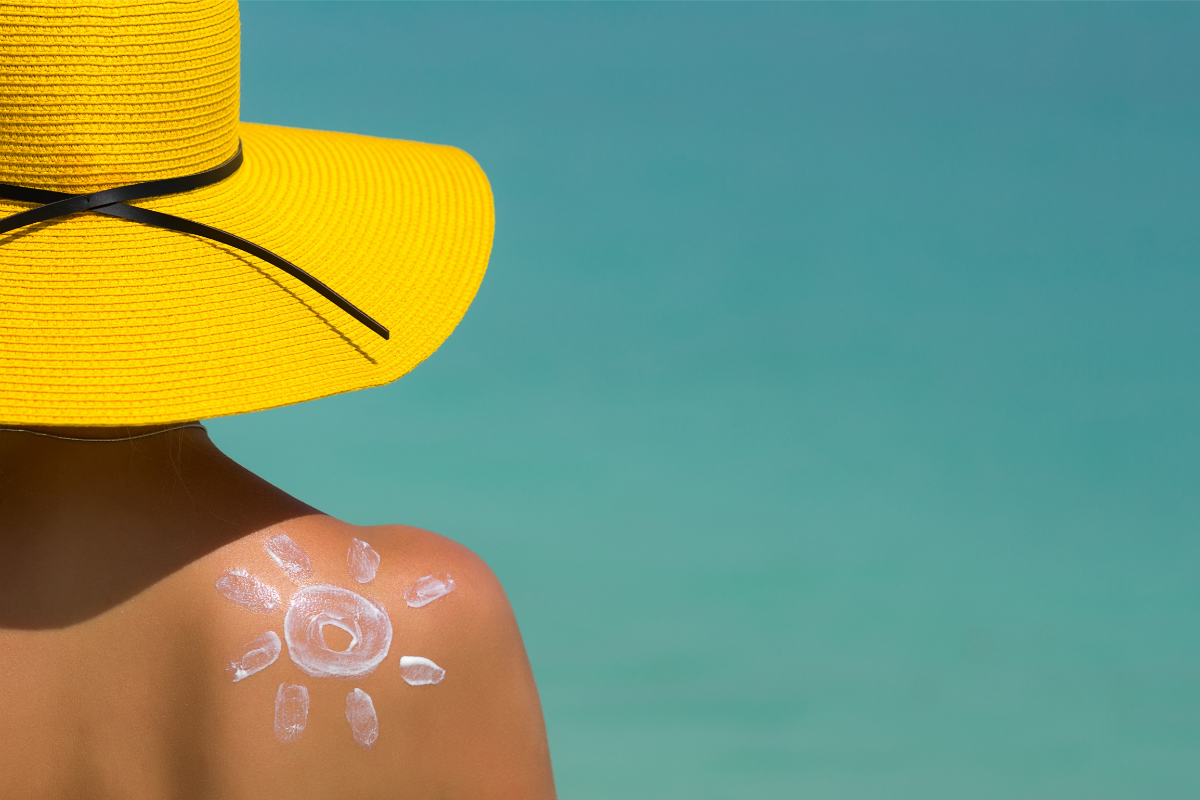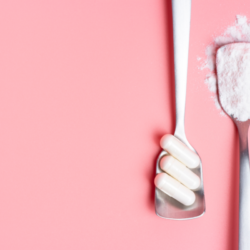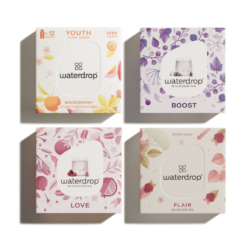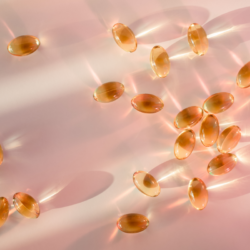The sun is an omnipresent element in our lives. It provides warmth, light and vitality, but what about its effects on our skin ? Can the sun accelerate skin ageing? In this article, we’ll explore the different ways in which the sun can affect our skin, looking at the underlying biological mechanisms and providing practical advice on how to protect our skin from premature ageing.
The sun and ultraviolet rays
The sun emits different types of radiation, including ultraviolet (UV) rays. UV rays fall into three categories: UVA, UVB and UVC. UVA rays penetrate deeper into the skin, UVB rays are responsible for sunburn and UVC rays are largely filtered out by the Earth’s atmosphere.
UV rays can damage skin cells by causing mutations in the DNA and generating free radicals, which are highly reactive molecules. This damage can lead to wrinkles, pigmentation spots and other signs of skin ageing.
The effects of the sun on the skin
This article explores the impact of the sun on the skin, highlighting three major problems: the appearance of fine lines and wrinkles, the emergence of pigmentation spots and changes in skin texture, which can lead to skin problems such as acne and blackheads.
Fine lines and wrinkles
Prolonged exposure to the sun is one of the main factors contributing to wrinkles and fine lines. UV rays can alter the structure of collagen, a protein that gives skin elasticity and firmness. When collagen is damaged, the skin loses its suppleness, leading to the appearance of fine lines and wrinkles.
Pigmentation spots
Pigment spots, such as age spots and freckles, are also influenced by exposure to the sun. UV rays stimulate the production of melanin, the pigment responsible for skin colour. Excessive exposure to the sun can lead to excessive melanin production, leading to the appearance of unsightly pigmentation spots.
Skin texture
The sun can also alter the texture of the skin, making it rougher and thicker. Chronic exposure to the sun can cause an accumulation of keratin, a protein naturally present in the skin. This build-up can clog pores and lead to skin problems such as acne and blackheads.
How can you protect your skin from the sun?
Now that we’ve understood how the sun can accelerate skin ageing, it’s essential to know the appropriate protective measures to keep our skin young and healthy. Here are a few practical tips to protect your skin from the sun:
Use sunscreen
Daily use of a broad-spectrum sunscreen with an SPF of at least 30 is essential to protect your skin from harmful UV rays. Apply sunscreen generously to all exposed areas of your body and reapply every two hours, or more frequently if you’re sweating or swimming.
Cover up
When out in the sun, wear long clothing, preferably tight-fitting, to protect your skin from UV rays. Choose wide-brimmed hats to protect your face and neck, and sunglasses with UV protection to protect your eyes.
Avoid exposure to the sun at peak hours
UV rays are most intense between 10am and 4pm. Try to limit your exposure to the sun during these peak hours. Stay indoors or seek shade where possible.
Be aware of reflective surfaces
Reflective surfaces, such as water, sand and snow, can reflect the sun’s rays and increase your UV exposure. Take extra precautions when you’re near these surfaces by applying sunscreen and wearing protective clothing.
Don’t ignore cloudy days
Many people make the mistake of thinking that cloudy days offer natural protection from the sun’s UV rays. However, it’s essential to understand that even when the sky is covered in clouds, UV rays can still penetrate through the clouds and reach your skin. So don’t underestimate the importance of sun protection, even when it’s grey outside.
UVrays are invisible to the naked eye and can penetrate clouds to reach the Earth’s surface. Clouds can reduce the intensity of UV rays, but this does not mean that they are completely blocked. UVA rays, in particular, are able to penetrate clouds and cause skin damage.
It’s important to understand that UV rays are present all year round, whatever the weather conditions. Cloudy days can be misleading, as they can give the impression that there is less risk of sunburn or skin damage. However, it’s essential to bear in mind that UV rays are always present and sun protection is still necessary.
Even on cloudy days, it’s important to adopt good sun protection habits. Apply a broad-spectrum sunscreen with a sun protection factor (SPF) of at least 30 to all exposed areas of your skin. Make sure you reapply sunscreen regularly, especially after sweating or swimming.
As well as sunscreen, consider wearing protective clothing, such as long-sleeved shirts and long trousers, to cover your skin as much as possible. Don’t forget to protect your eyes by wearing sunglasses that offer UV protection.
It’s also important to remember that the harmful effects of the sun are not limited to hot, sunny days. Even in the winter months or on cooler days, UV rays can damage your skin. So, whether it’s a sunny or cloudy day, always take the necessary precautions to protect your skin from the sun.
Moisturise and nourish your skin
Good hydration is essential for keeping your skin healthy. Drink plenty of water throughout the day. In addition, use moisturising products to help maintain the skin barrier and prevent dryness.
FAQ
Q1. Is the sun the only factor contributing to skin ageing?
No, the sun is one of the main factors contributing to skin ageing. However, other factors, such as smoking, stress, pollution and lifestyle, can also play a role in premature skin ageing.
Q2. Are dark-skinned people also subject to the harmful effects of the sun?
Yes, although dark-skinned people have a natural protection against UV rays due to a greater quantity of melanin, they are still exposed to the harmful effects of the sun. Dark-skinned people can also develop wrinkles, age spots and other signs of skin ageing due to excessive exposure to the sun.
Q3. Does using sunscreen completely prevent skin ageing?
Using sunscreen can considerably reduce the damage caused by the sun. However, it cannot completely prevent skin ageing. It is important to combine the use of sunscreen with other protective measures, such as wearing protective clothing and limiting direct exposure to the sun.
Q4. Are tanning booths safe for the skin?
No, tanning booths emit artificial UV rays. In fact, they can damage the skin in the same way as exposure to the sun. Regular use of tanning booths can increase the risk of skin cancer and accelerate skin ageing.
Q5. Are there natural ways of protecting the skin from the sun?
Some natural ingredients can offer extra protection against UV rays. For example, coconut oil and raspberry seed oil are known for their natural sun protection properties. However, it is important to note that these methods are not as effective as using an SPF. Under no circumstances should they be used as a substitute.
Q6. Is sun-induced skin ageing reversible?
Some of the skin changes caused by exposure to the sun can be reduced by dermatological treatments. These include chemical peels, lasers and laser treatments. However, it is important to protect your skin from the sun to prevent further damage and slow down the ageing process.
Conclusion
The sun can accelerate skin ageing. It damages skin cells and causes wrinkles, fine lines and pigmentation spots. To protect your skin from premature ageing, you need to take precautions. It’s essential to use sunscreen, wear protective clothing, avoid direct exposure to the sun during peak hours and look after your skin by moisturising and nourishing it. Don’t forget that sun protection is important even on cloudy days. What’s more, tanning booths are not safe for your skin. Take care of your skin and enjoy the sun responsibly to keep it young and healthy.
@soin.et.nature ☀️?️ Cet été, ne laissez pas les coups de soleil gâcher vos moments de plaisir ! ?️ Saviez-vous que les rayons UVA et UVB peuvent être nocifs pour votre peau ? ?? Les UVA accélèrent le vieillissement de la peau et les UVB causent des brûlures solaires. ? La protection solaire est donc essentielle ! ?️ Mais comment choisir le bon produit ? ? Les crèmes, gels, huiles ou aérosols solaires sont tous efficaces s’ils sont correctement utilisés. ? Mais attention, même avec une protection solaire, il faut toujours faire preuve de prudence quant à la durée et l’heure d’exposition au soleil. ?️ Et en cas de coup de soleil ? Pas de panique ! ? L’homéopathie, les plantes et l’aloé vera peuvent aider à apaiser la peau. ?? Rendez-vous sur notre site web https://www.soin-et-nature.com/fr/ pour trouver la protection solaire parfaite pour vous et découvrir nos solutions naturelles en cas de coup de soleil. ??️ Protégez-vous et profitez pleinement de l’été ! ?♀️?♂️? #TikTokSanté #suncream #spf #boj #koreanspf#spf #cremesolaire #retinol #antiaging #sunspot #SantéNaturelle #Homéopathie #Sport #PriseDeMasse #Naturopathie #SaludNatural #Homeopatía #Deporte #AumentoDeMasa #protection #coupdesoleil #sunspot #Naturopatía ????





